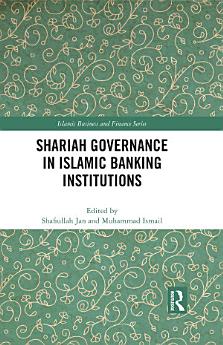Shariah Governance in Islamic Banking Institutions
এই ইবুকখনৰ বিষয়ে
Shariah Governance in Islamic Banking Institutions provides a critical overview of the key aspects pertaining to Shariah governance within Islamic financial institutions and presents a detailed analysis of its conceptual background. The authors have identified the unique issues that have emerged due to the integration of Shariah, namely the involvement of the Shariah supervisory board (SSB), in the corporate governance arrangements of Islamic banks. These issues relate to disclosure, transparency, independency, consistency, confidentiality, competency, and reputation. The book details the doctrines of Shariah pronouncements in Islamic banks, the importance of having a central advisory board at a regulatory level in the standardization of Islamic banking practices, as well as the competence required for Shariah supervisory board members. It provides a critical analysis of the Shariah governance framework in Pakistan and introduces the authors’ vision of an ideal Shariah governance framework. Furthermore, the chapters offer guidance in promoting effective policies for improving Shariah governance.
This is one of the core challenges facing Islamic banks, namely, to ensure compliance with faith and provide legitimacy to the business of IBIs, and as such, the book will appeal to both the research and professional communities.
লিখকৰ বিষয়ে
Shafiullah Jan is Associate Professor and Head of Centre for Excellence in Islamic Finance, Institute of Management Sciences, Peshawar, Pakistan.
Muhammad Ismail is Assistant Professor at Iqra National University, Peshawar, Pakistan., Peshawar, Pakistan.





